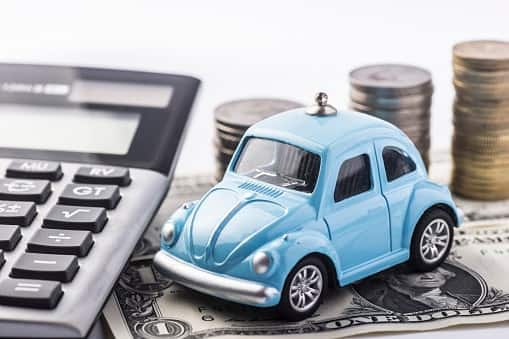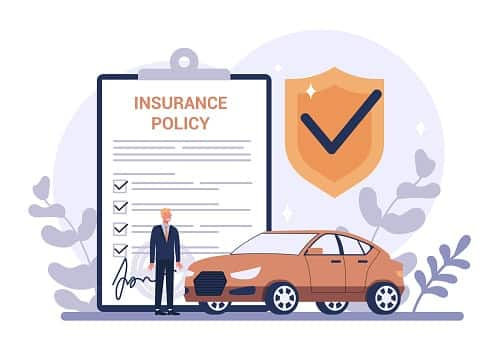What do you need to know before you buy car insurance?
You need car insurance. It’s the law almost everywhere, and it provides financial protection if you’re in an accident. But beyond that, many people don’t understand their coverage or what they need.
Shopping for car insurance is easier when you know what you want and why you need it. That means understanding what affects rates, what coverage is more costly and why, and how to avoid mistakes leading to overpaying.
Here are eight things about auto insurance that you need to know.
1. Some of the most helpful coverages are the cheapest
The coverage you are required by law to buy in nearly every state, liability insurance, is typically the most expensive. It should be. Your insurance carrier could be on the hook for hundreds of thousands of dollars if you’re in a serious accident.
Full coverage insurance often doesn’t cost a lot more, however. That’s because the most an insurance company will have to pay out on a comprehensive or collision claim is the value of your car, which it will pay out in actual cash value (depreciated value) and not what the car cost new.
2. A lot of factors affect car insurance rates
Auto insurance companies use many different criteria when evaluating an insurance application during a process called underwriting. Each car insurance company has guidelines for which drivers it will accept and what rates it will charge. But the factors remain the same for most insurers.
The insurance company will look at many records to see how many violations a driver has received, accidents they have been involved in, credit history and more. Your final rate is a careful calculation based on the amount of risk you represent to that insurance company.
3. Insurance rates vary a lot by company
Car insurance rates differ significantly from one insurance company to another. That's because each insurance company uses its own formula to assess risk and decide what you pay for coverage. They may use the same factors above, but they don’t weigh them the same way. This means no two insurers will have identical prices for the same policy. Often, the difference is hundreds of dollars. So, if you don't compare rates, you can overpay.
"Auto insurance is a highly competitive business and one of the most effective ways to reduce insurance costs is simply to shop around," says Jeanne Salvatore, senior vice president of the Insurance Information Institute. "Drivers should look for an insurance company that will provide a good price along with excellent service."
The best plan is to decide what coverages and options you need and comparison shop so you can find cheap auto insurance that still provides sufficient coverage.
4. If you let your policy lapse, you'll pay more in the long run
Most insurance companies view drivers who are licensed but don't have insurance as risky or irresponsible. Because of this, if you let your policy lapse, you'll probably pay more when buying car insurance.
To avoid this, if you don't want to pay for insurance or are planning to let your policy expire because you want to switch car insurance companies, get new coverage first. If you won’t be driving for a while, consider keeping some coverage in place to prevent a lapse.
5. Higher deductibles can lower your premium
If you agree to pay for a larger portion of your own damages by raising your deductibles, your car insurance company sees that as you being willing to share the risk a little more.
Because of this, they will usually give you a lower premium. If you decide to raise your deductibles to save money, be sure you can afford to pay the deductible if you have to make a claim.
6. Insurance discounts can make a big difference
Most insurance companies offer auto insurance discounts for things like a safe driving record, car safety features, anti-theft devices, electronic payments and payment in full. Make sure you're getting all of the discounts you qualify for; they can result in savings of 30% or more.
7. You may not need to carry every available coverage.
Most of your car insurance premium goes toward liability, as mentioned above. It's typically not a good idea to reduce this portion to save money because you'll be responsible for any damages above your policy limits.
However, other coverages, although helpful, could be reduced or eliminated to lower your premium. If you have an older car, it might make sense to drop comprehensive and collision. If you own two cars, you might not need coverage for a rental.
A car insurance coverage calculator can help you decide what coverage you really need and what you can safely drop.
8. The car you drive will affect your auto insurance rates
The Highway Loss Data Institute compiles insurance accident statistics for most types of cars. Many insurance companies use data like this when setting prices on your insurance.
For example, if the car you drive is expensive to repair, the company will have to pay more if you get in an accident. Conversely, if your car is extremely safe and protects occupants well, the risk of serious injuries is reduced. If your car model is generally less likely to be stolen, your car insurance company is less likely to have to pay to replace it.
These car-related factors can raise or lower the auto insurance quotes you receive, so it makes sense to keep insurance in mind when purchasing a car. Of course, since rates are based on much more than just the car you drive, your overall rate may be more or less than someone driving the same car.





